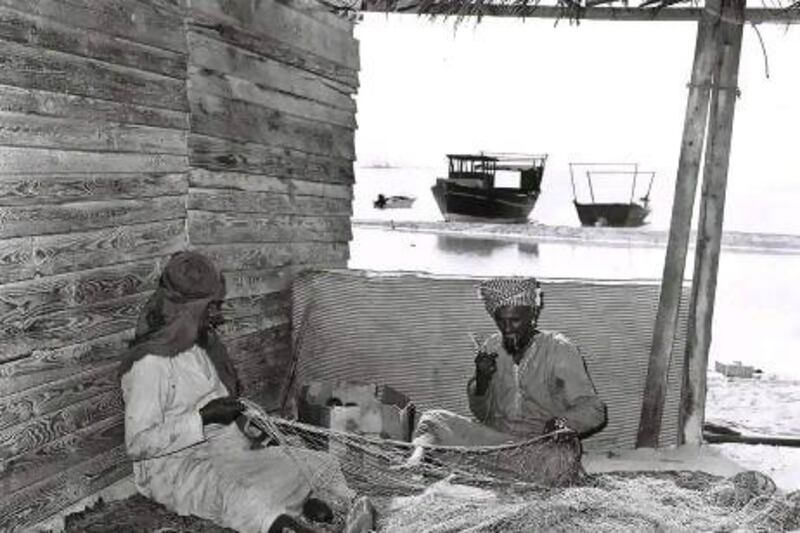In a time before digital cameras, photographers were more careful with the shutter button, waiting for the right moment to shoot so as to conserve their precious stocks of film.
And "waiting" for that timeless moment is what Shaukat Ali Sufi Muhammad has been doing for most of his working life, ever since he started working as a photographer for Al Ittihad newspaper - The National's Arabic-language sister paper - in 1976.
"You spend a whole day, many hours, just standing and waiting to capture a photo that takes just two seconds," says Mr Muhammad, who retired this month from the Abu Dhabi-based newspaper. "But sometimes, those two seconds are worth a lifetime."
In a lifetime behind the lens, Mr Muhammad has witnessed the great changes to Abu Dhabi, both the island and the areas around it. From the old bus station and taxi stands that once stood near the Corniche in Hamdan and Airport road area, to the old central souq off Hamdan Road that was gutted by a blaze in 2003, and to the fishermen that once dominated the shores of Al Bateen, his camera has captured priceless memories of a past that has long been replaced by modern architecture.
"There is something special about old photos," he says. "They beautifully tell the story of a place."
Born in 1952 in Pakistan, his family moved to the capital soon after when his father got a job with the army. He has lived here ever since.
He recalls he was one of the few photographers here in the 1970s with a degree in arts and photography, a four-year course from the National College of Arts in Pakistan that also included sculpture and painting.
"That is why I was hired on the spot. I was very lucky and I never changed jobs," he says, revealing that he started on a salary of Dh1,800.
Dressed in a beige suit, the award-winning photographer is one of the last of the old guard of Al Ittihad's photographers and says he will miss working out on the field.
"I am an artist, I love nature and its various moods. I won't stop taking photos and sketching," he says, proudly showing off one of his favourite photos of birds sitting against a deep red and orange sunset.
While over the years many of the negatives have been lost, he has a printed collection of his favourite photos. Others were saved on computer hard drives. "These photos are like my children, I love each one for different reasons," he says.
One of these images, from 1982, is a black and white photo of an old Emirati man sitting in one of the caves of Fujairah's mountains.
The man walked almost every day to collect water from a well that was 10 kilometres away.
"When I asked 'why don't you just live near the well?', he said that his father and the father before him lived in this hill, 'and so I will live here and so will my children'," Mr Muhammad recalls.
His largest collection portrays the late President, Sheikh Zayed. From 1987 to 1990 he was one of the official protocol photographers for Al Ittihad and the Sheikh Zayed journal.
"His Highness was always very kind to us photographers. He would greet us, make sure we were fed and had enough water," says Mr Muhammad. "When he would notice us standing there for too long, he would try to help us get the official photo by talking to the official next to him and posing for us so that we didn't have to wait around longer."
He travelled with Sheikh Zayed to Pakistan, Morocco, Bahrain, Saudi Arabia, Oman and the UK and captured him as a Ruler and statesman. But it was when Sheikh Zayed was in the UAE that he was the happiest.
"Sheikh Zayed was the happiest when visiting local villages and sitting with his people. He really loved them and truly enjoyed his time with them the most."
If he has a lasting regret, it is that he never posed with Sheikh Zayed. The only photo he has is one taken of him taking a photo at an official meeting with Sheikh Zayed and other Sheikhs at table.
"He would have done it. He was that kind of man, a very humble man who would have posed with a simple photographer like me," he says.
With his memories captured in photos, Mr Muhammad will be staying in the UAE, running Al Tabbaq, a restaurant he has opened in Sharjah. His son, Azzem, has followed in his footsteps.
"My son will continue the family tradition of capturing UAE history and its changes through photos," Mr Muhammad says. "So I feel content with how everything turned out in my life."






